2022 Shortlist
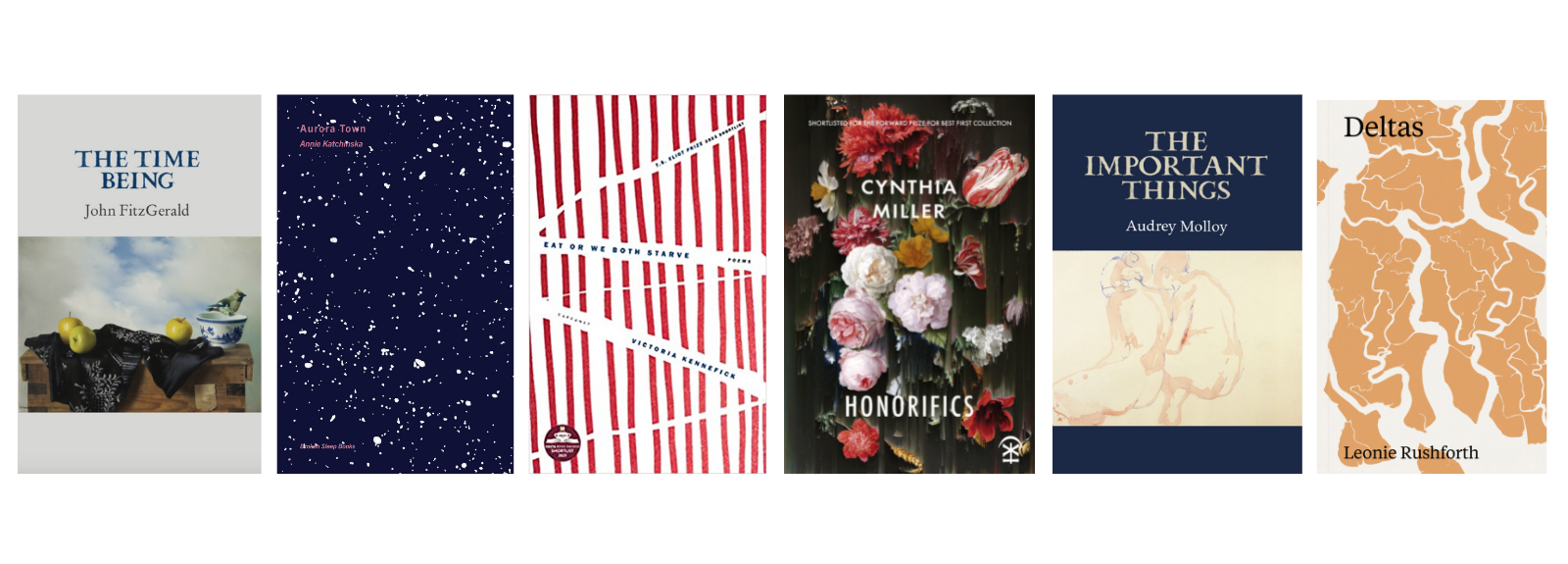
We are delighted to announce the shortlist for the 2022 Seamus Heaney Poetry Prize for a First Collection, supported by the Atlantic Philanthropies. The winner will be announced during the Seamus Heaney Centre’s annual Poetry Summer School, at the Award Night readings in June 2022.
“The Seamus Heaney First Collection Poetry Prize is a highlight of the Seamus Heaney Centre’s year, and this year we saw a wonderful range and variety of debuts. We were impressed by the imagination and daring of the shortlisted books, and look forward to what the shortlisted writers do next.”
- Nick Laird, Seamus Heaney Professor of Poetry at Queen's, and judge of the Poetry Prize
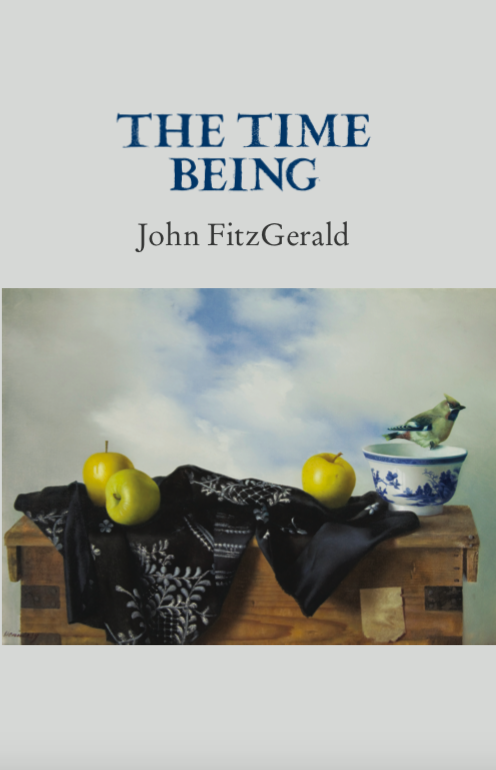
"John Fitzgerald’s The Time Being is a skillfully turned collection dealing primarily with aging and rural Ireland, but employing a craftiness and interesting ear to set the poems at a slight slant to that tradition. Some poems set out further, too, to Iceland, China, America, but in all of them a restless, questing sensibility pervades that keeps faith with the project of poetry. “Nothing examines a thing like a hen”, Fitzgerald writes in a memorable epigram and, he might have added, nothing examines a thing like a poem."
- Nick Laird, Poetry Prize judge
Clarity in vision, thought and language, distinguishes The Time Being, John FitzGerald's first collection. With poems that explore place and memory, family, relationships and the natural world, John FitzGerald establishes a potent empathy with his reader through a watchful, precise poetry. Some poems enact themselves through their linguistic physicality and rootedness in place. Others search deeper for what it means to be alive and alert in the world today. Moments from America, Iceland and China are set among experiences of the land and countryside around the poet’s home in rural Ireland. All are revelations of one sort or another, their controlled energy producing a drama that is at once private and universal. Delighting in setting, language and form, The Time Being marks the arrival of a distinctive presence in Irish poetry.
. . . and I wonderif my real purpose in returning herehas been to make good the past,ensure that someone gets it right this time . . .
— ‘Seeing Clear’
John FitzGerald was born in Cork in 1962. He won the Patrick Kavanagh Poetry Award in 2014 and was shortlisted for a Hennessy Award in 2015. A chapbook, First Cut, appeared in 2017, followed by Darklight, a limited edition, in 2019. A recipient of a Key West Literary Bursary, John FitzGerald has lived in Dublin, London and Florence, and since 1995 has worked as University Librarian at University College Cork. He lives with his family on their farm in Carrigdarrery, County Cork. His first collection, The Time Being, was published by The Gallery Press in June 2021.
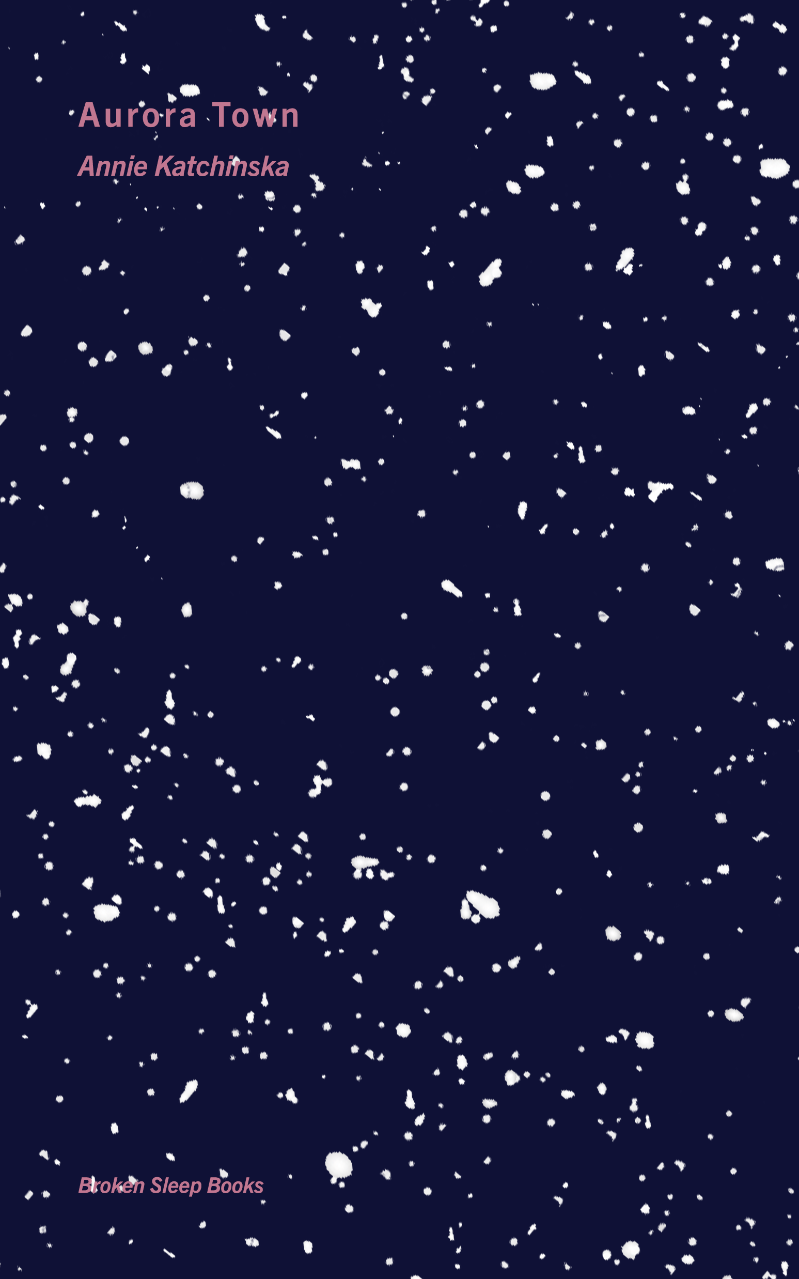
"The dazzling, displaced poems of Aurora Town sketch life in Sapporo: karaoke and the snow festival; its manners and grammar. Katchinska's is also a book of faith found and lost. It is exhilarated in its language and gentle in its wisdom: "Listen Listen Listen to me Let me tell you / what I've learned so far", says the title poem of this compelling, original collection."
- Stephen Sexton, Poetry Prize judge
Aurora Town is the hotly anticipated first collection from Eric Gregory Award winner Annie Katchinska. It takes its title from an underground shopping street in Sapporo, a city in the north of Japan where Katchinska lived for two years. The poems are warped, diced up, loosely autobiographical texts built from her notebooks, illuminated by a ceaselessly inventive creative spirit. Aurora Town neatly captures the displacement and loneliness of living far from home, of turning to faith and then losing it, in a style which is completely her own.
Annie Katchinska was born in Moscow in 1990 and grew up in London. She was a Faber New Poet in 2010. In 2018 she won an Eric Gregory Award and her pamphlet Natto was published by If A Leaf Falls Press.
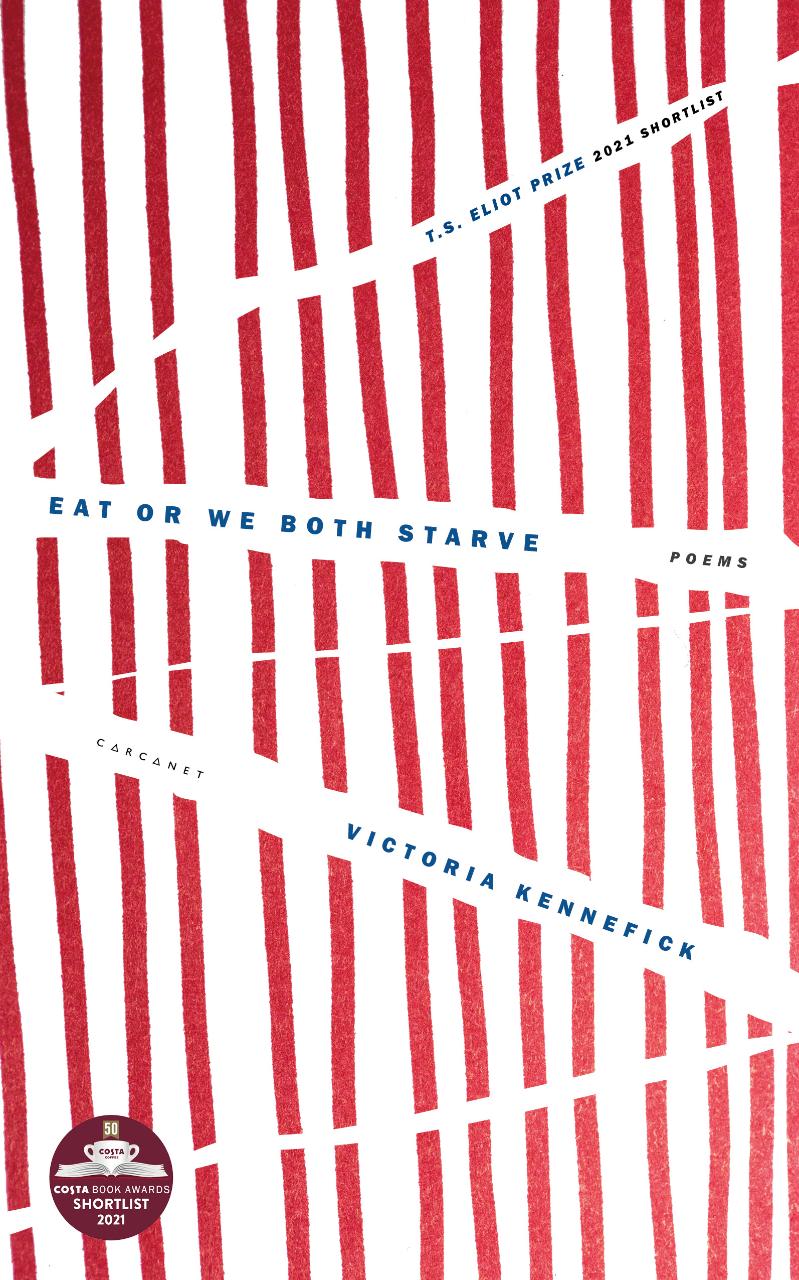
"In Eat or We Both Starve Kennefick gives us a set of metaphysical explorations of what it means to hunger, both spiritually and physically. These questing poems are grounded by language that is both earthy and tactile. Unafraid to lean into the grotesqueness of the body, here we find a world where cannibals confess that 'Hunger...proved stronger than grief.' Keenly attuned to pleasure, too, here female experience is expressed with joyful abandon: 'Afterwards, our seams popping, we shriek with laughter.'"
- Jessica Traynor, Poetry Prize judge
Eat or We Both Starve, draws readers into seemingly recognisable set-pieces - the family home, the shared meal, the rituals of historical occasions, desire - but Kennefick forges this material into new shapes, making them viable again for exploring what it is to live with the past - and not to be consumed by it.
Rebecca Goss writes: 'Victoria Kennefick writes with a fresh urgency, giving us poems that are honest and fearless. She once said: "Poetry has saved my life, made my life. Reading and writing it have taught me bravery and discipline." Kennefick is unafraid to explore bereavement, sex and the female body in her poetry. She writes with a visceral originality. Her poems are rich with physical sensations. She is able to find beauty in the big subjects like sorrow and desire, offering us the finest, most startling details. Her identity as a young Irish woman is hugely important to her, something she explores with intelligence and candour. I have always felt there is nothing Victoria could not tackle. The scope in her work is exhilarating.'
Victoria Kennefick is a poet, writer and teacher from Shanagarry, Co. Cork now based in Co. Kerry. She holds a doctorate in English from University College Cork and studied at Emory University and Georgia College and State University as part of a Fulbright Scholarship.
Her pamphlet, White Whale (Southword Editions, 2015), won the Munster Literature Centre Fool for Poetry Chapbook Competition and the Saboteur Award for Best Poetry Pamphlet. Her work has appeared in Poetry, The Poetry Review, PN Review, Poetry Ireland Review, The Stinging Fly, Poetry News, Prelude, Copper Nickel, The Irish Times, Ambit, bath magg, Banshee and elsewhere. She won the 2013 Red Line Book Festival Poetry Prize and many of her poems have also been anthologised and broadcast on national radio stations.
A recipient of a Next Generation Artist Award from the Arts Council of Ireland, she has also received bursaries from Kerry County Council and Words Ireland. She was a co-host of the Unlaunched Books Podcast and is on the committee of Listowel Writers’ Week, Ireland’s longest-running literary festival.
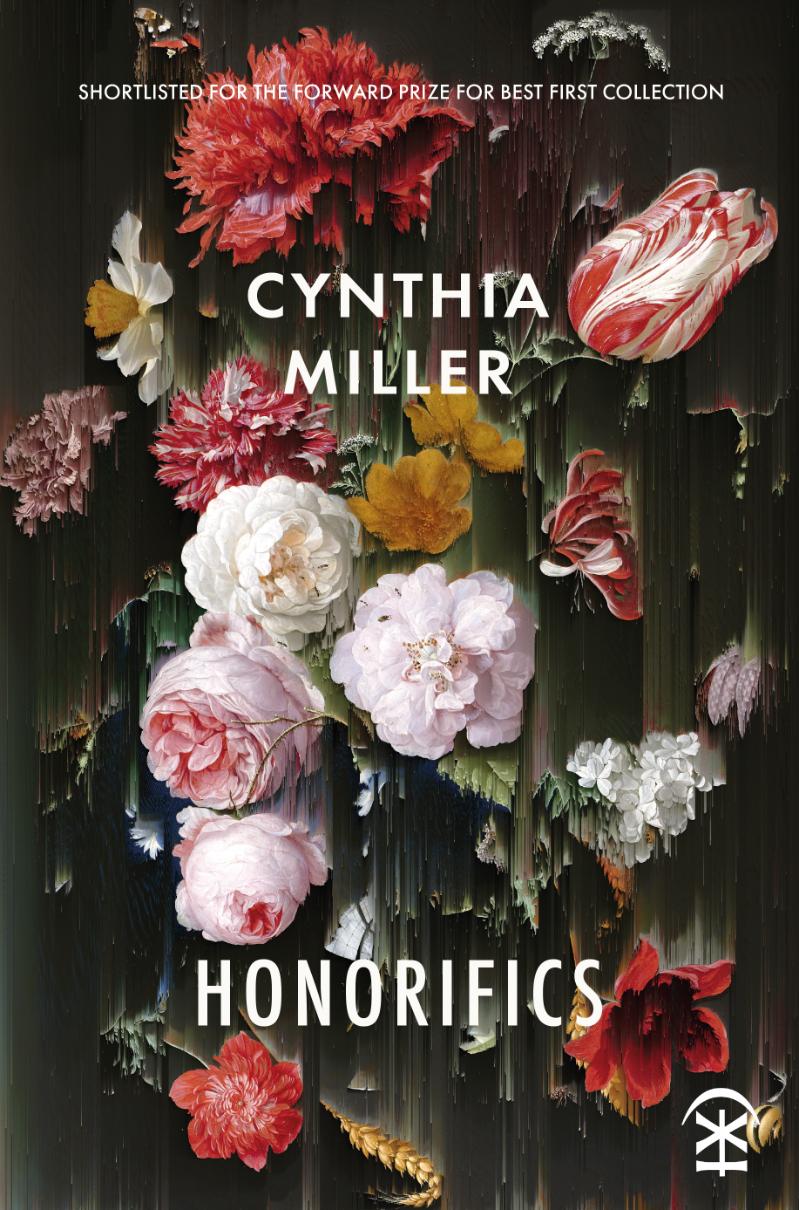
"In Honorifics, Miller demonstrates a rare range, both formal and thematic, in poems which explore identity and place through family history and scientific enquiry. There's a confident voice here as much at home in the updating of Greek myth for the Zoom era as it is exploring the plight of jellyfish bred in zero gravity. In the 'Bloom' sequence, ideas of home and belonging are broached in a manner both refreshing and resonant: 'Calling me unearthly shows how small your world is.'"
- Jessica Traynor, Poetry Prize judge
Honorifics is an astonishing, adventurous, and innovative exploration of family, Malaysian-Chinese cultural identity, and immigration. From jellyfish blooms to glitch art and distant stars, taking in Greek gods, space shuttles and wedding china along the way, Miller’s mesmerizing approach is experimental, luscious, and expansive with longing - “My skin hunger could fill a galaxy”.
Here, the poetry is interwoven with the words for all the things we honour – our loved ones and our ancestors, home and homecomings, and all that is precious and makes us feel that we belong and are beloved. It is also a book that examines contemporary issues of migration in sharp and enquiring relief. Language itself becomes a radical power for reimaging, challenging, and making change, and Miller’s distinctive and multifaceted poetry creates an extraordinary space for multiplicity and celebration.
Cynthia Miller is a Malaysian-American poet, festival producer and innovation consultant living in Edinburgh. Her poems have appeared in Ambit, The Rialto, Butcher's Dog, Poetry Birmingham Literary Journal, harana poetry, The Best New British and Irish Poets and Primers Volume Two. She is also Co-Founder of the Verve Poetry Festival.
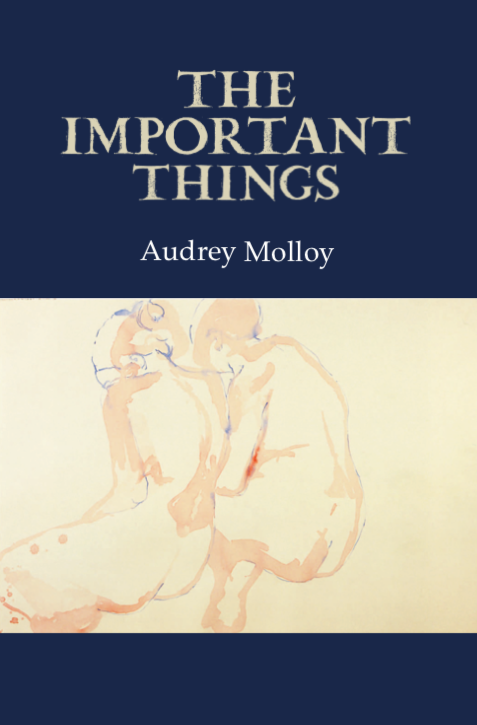
"In this striking, moving, bold debut, Audrey Molloy's poems move between Ireland and Australia, parenthood and daughterhood, and the sensual worlds of the body, its attendant desires and intensities. Beyond these essential forces, The Important Things, in all its formal elegance, is a book of grief too. Its second part stuns with tenderness."
- Stephen Sexton, Poetry Prize judge
‘ . . . know this: someone
once looked upon your life
and wished it were theirs.’
‘I blame Madonna’ is the arresting opening of one of the poems in Audrey Molloy’s remarkable and distinctive first collection. In an unusual display of different forms the book resounds with echoes of other writers but is the work of a true original. From ‘What We Learned at Loreto’ to ‘Lockdown Boogie’ it explores the surreal, the dreamt and the down-to-earth everyday in images laced with humour, science and sex. It chronicles the end of a marriage and the discovery of new love and renewed passion. ‘Know you tried’ concludes the book’s opening section. Its second part comprises a sequence of poems that mourn her mother, savour memories and rue missed opportunities. This is a woman’s tale reported in feisty, sensual and beautiful poetry.
Audrey Molloy was born in Dublin and grew up in County Wexford. She now lives in Sydney. A mother of three children, she is studying for a Masters degree in Creative Writing at Manchester Metropolitan University. She received the Hennessy Award for Emerging Poetry and the An Post Award for Irish Poem of the Year. Audrey’s work has appeared in magazines and anthologies in Ireland, England and Australia. Her debut collection, The Important Things (The Gallery Press, 2021) received Australia’s 2021 Anne Elder Award for a first collection. She is the grateful recipient of a Literature Bursary from the Arts Council of Ireland.
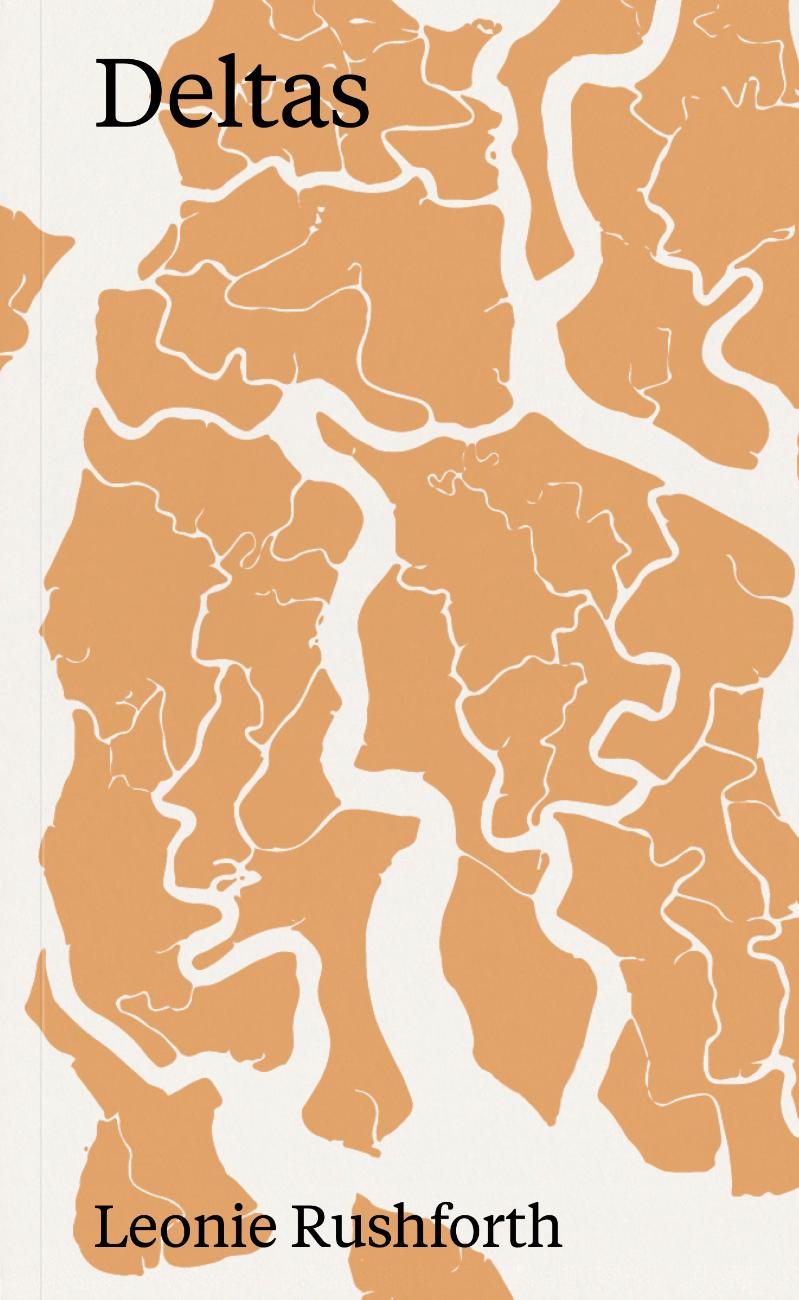
"Leonie Rushforth’s Deltas is deceptively slight at forty-odd pages, but it contains much and many exemplary poems – by turns innovatively observant or syntactically ambitious or just plain gorgeous. An owl “launches its bookish questions / from the iron gate”. Rushforth employs contrasting tones and dictions to great effect, and there is the evidence of a deeply alert poet at work here: “In the Room for Listening to Pleasant Sounds / I am attentive to the silence.'"
- Nick Laird, Poetry Prize judge
Deltas, Leonie Rushforth’s first book, reveals a poetics on high alert, where the ‘tireless human sonar’ scans a compromised world for calamity and grace. In her vision of precarity and connectedness, attention might prove the opposite of surveillance: a tender, sober act of keeping faith with the ethical force of exact expression.
Her poems are provisional landscapes, like river deltas, where with language both sidelong and luminous she suggests a way of seeing and measuring distances – temporal, spatial, political – that opens a route not only to individual survival but to humane dialogue and the hope of community.
Leonie Rushforth was born in Ely in 1956. A writer, editor and poet, she was the winner of the Keats-Shelley Prize in 2003, and was awarded second place in the 2021 Poetry London Prize, as judged by Malika Booker. Alongside her many years of writing poetry and journalism, Leonie has also served on the judging panels of the Costa Book Awards and the Forward Poetry Prizes. She lives in East London, and Deltas is her first full collection of poems.
